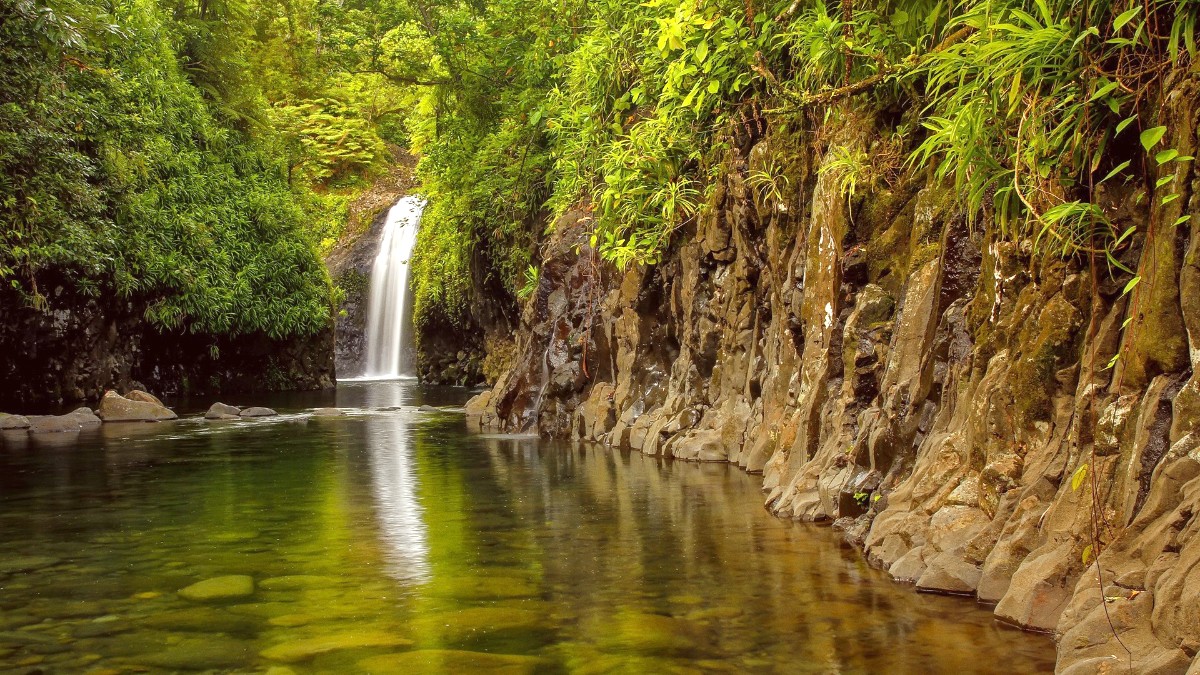
Fiji
Support protected areas and minimize your environmental footprint.
Engage respectfully with local customs and traditions.
Make choices that benefit Taveuni's local communities.
Taveuni’s pristine environment is its main attraction. Support conservation and reduce your impact.
Bouma National Heritage Park exemplifies community-based conservation, with tourism revenue supporting local village efforts. The Somosomo Strait, home to the Rainbow Reef, is a globally significant biodiversity hotspot, with dive operators active in coral reef monitoring. Marine Protected Areas (MPAs) by local communities ensure sustainable fishing. Taveuni Island Bird Sanctuary protects endemic species.
Waste management on Taveuni is a challenge due to limited recycling. Minimize waste by using Reusable water bottles and Shopping bags, avoiding single-use plastics. Always take trash with you from natural sites. While Taveuni has abundant rainfall, freshwater resources can be strained; be mindful of water usage in showers and laundry.
Many Taveuni resorts prioritize eco-tourism, practicing rainwater harvesting, solar power, and waste reduction. Look for properties that employ locals. Dive operators generally commit to reef preservation, with strict "look but don't touch" rules. Choose operators with a clear conservation stance. Consider Ecobnb for accommodations and G Adventures for ethical tours.
Community-based tourism (Bouma, Vidawa) helps preserve local culture by integrating it into tourist experiences and providing economic benefits. Maintaining traditional ceremonies (Kava, Lovo, Meke) in villages and resorts fosters cultural continuity. Respectful interaction guidelines are to a positive exchange.
Support businesses directly benefiting local communities, like Bouma National Heritage Park. Purchase souvenirs directly from local artisans or cooperatives. Choose products from The Rainforest Site to aid conservation.
Dine at local eateries, use local taxis, and buy produce from Somosomo market to distribute income widely. Avoid activities that exploit people or animals. If donating, consider local schools or health clinics, not direct giving to individuals.
Before visiting a village, ask your resort or guide about proper etiquette, including appropriate dress and how to present a sevusevu (traditional gift). This preparation shows genuine respect.
Your engagement with Taveuni can extend beyond the island's shores.
Many resorts on Taveuni, especially mid-range to luxury, actively promote eco-tourism and sustainable practices. They emphasize rainwater harvesting, solar power, waste reduction, and local employment.
Dive operators on Taveuni demonstrate a strong commitment to preserving the Rainbow Reef. They maintain strict "look but don't touch" policies and implement reef-safe practices. Choosing these operators directly supports the health and longevity of this incredible underwater ecosystem.
Purchasing souvenirs and crafts directly from local artisans or community cooperatives directly benefits the maker. This approach ensures that money from your purchases stays within the local economy, avoiding mass-produced items where the financial impact may be less localized.
This strengthens the local economy and offers a more authentic experience.
Be aware of potential exploitation and avoid activities that exploit people or animals. This includes refraining from places that promote unethical animal interactions. If someone asks for money directly, it is usually not advisable to give, as this can inadvertently encourage begging. For charitable contributions, consider donating to local schools, health clinics, or established community development projects rather than directly to individuals. Your resort or a trusted local guide may advise on legitimate local needs.
Steer clear of activities involving unethical treatment of people or animals.
Direct monetary donations to individuals are generally discouraged to avoid fostering dependency.
Donate to verified local schools, clinics, or community projects for a tangible impact.
Your travel choices can have a positive economic impact on Taveuni's local communities. Choose wisely to support the island's residents.
Taveuni offers a range of experiences, from natural beauty to cultural immersion. Plan your visit to align with your interests and budget.
Stay at budget guesthouses or homestays (limited; inquire locally). Use Lomabuses and shared taxis for economical transport. Buy groceries at Somosomo Market and self-cater to save on meals. Eat at local eateries for affordable, authentic food. Focus on free or low-cost activities like swimming, basic snorkeling, visiting the International Dateline, and hiking the first Tavoro waterfall.
Stay at a comfortable mid-range resort, balancing amenities with cost. Balance organized tours with some independent transport (taxis). Enjoy resort dining but also explore a few local restaurants for variety and value. Include full-day dive trips, guided hikes, and a cultural experience. This approach provides comfort and access to a wider range of activities without the luxury price tag.
Stay at a high-end luxury resort (e.g., The Remote Resort, Qamea, Taveuni Palms). Utilize private transfers, including potential scenic flights. Indulge in fine dining at resorts and spa treatments. Charter private boats for diving, snorkeling, or island hopping. Consider personalized experiences and services. This offers an exclusive and pampered journey through Taveuni.
Travel during the shoulder or low season for better rates on flights and accommodation. Look for resort packages that include meals or specific activities to maximize value. Book flights and accommodation well in advance for potential discounts or promotions. This strategic planning can significantly stretch your travel budget while still allowing memorable experiences.
Each season on Taveuni offers unique advantages. Tailor your visit to enjoy seasonal highlights or explore during the off-season for a different experience. Taveuni's dry season (June-August) is ideal for outdoor activities, offering clear skies and comfortable temperatures, perfect for diving and snorkeling with excellent visibility. The wet season (December-February) sees the island lush green, with fuller, dramatic waterfalls, lower prices, and fewer crowds, though cyclones are a possibility.
Dry season, ideal for diving and snorkeling with clear visibility. Peak season for outdoor activities.
Wet season, lush greenery, full waterfalls. Lower prices and fewer crowds. Consider a Lightweight rain jacket.
Capitalize on lower prices and fewer crowds. Be prepared for rain and humidity. Confirm resort and activity availability.
The wet season (December-February) aligns with Fiji's cyclone season. While Taveuni remains beautiful, there is a possibility of tropical cyclones. Monitor weather forecasts closely if traveling during this period.
Consider cooking some of your own meals if your accommodation features kitchen facilities. Buying fresh produce from local markets like Somosomo is a fun and economical way to eat.